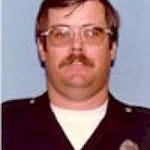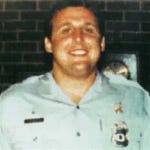
McLean, VA (July 15, 2025) - On May 4, 1886, a pro-labor crowd had gathered in Chicago’s Haymarket Square to rally in support of an eight-hour workday. Near the end of the rally, around 10:30 pm, a large number of police arrived and ordered the rally to disperse. That’s when an anarchist tossed a bomb into the path of the advancing police. It exploded, killing Patrolman Mathias Degan, and severely wounding many of the other police officers. Within a few days, six other Chicago patrolmen died from their injuries: John Barrett, Timothy Flavin, Nels Hansen, George Miller, Thomas Redden and Michael Sheehan. Two years later, Patrolman Timothy Sullivan died from the wounds he suffered in the incident. All totaled, eight police officers were killed as a result of the Haymarket bombing, and some 70 others in the crowd were injured in the bombing. At the time, it was the deadliest day ever for law enforcement, and still ranks as the third most officer fatalities in a single incident in U.S. history. Eight men were convicted of the crime and four were executed by hanging. It was not until 1926, 40 years later, that Henry Ford implemented a 5-day, 40-hour workweek at Ford Motor Company, setting a precedent for American industry. Listen to the podcast to learn more.












Share this post